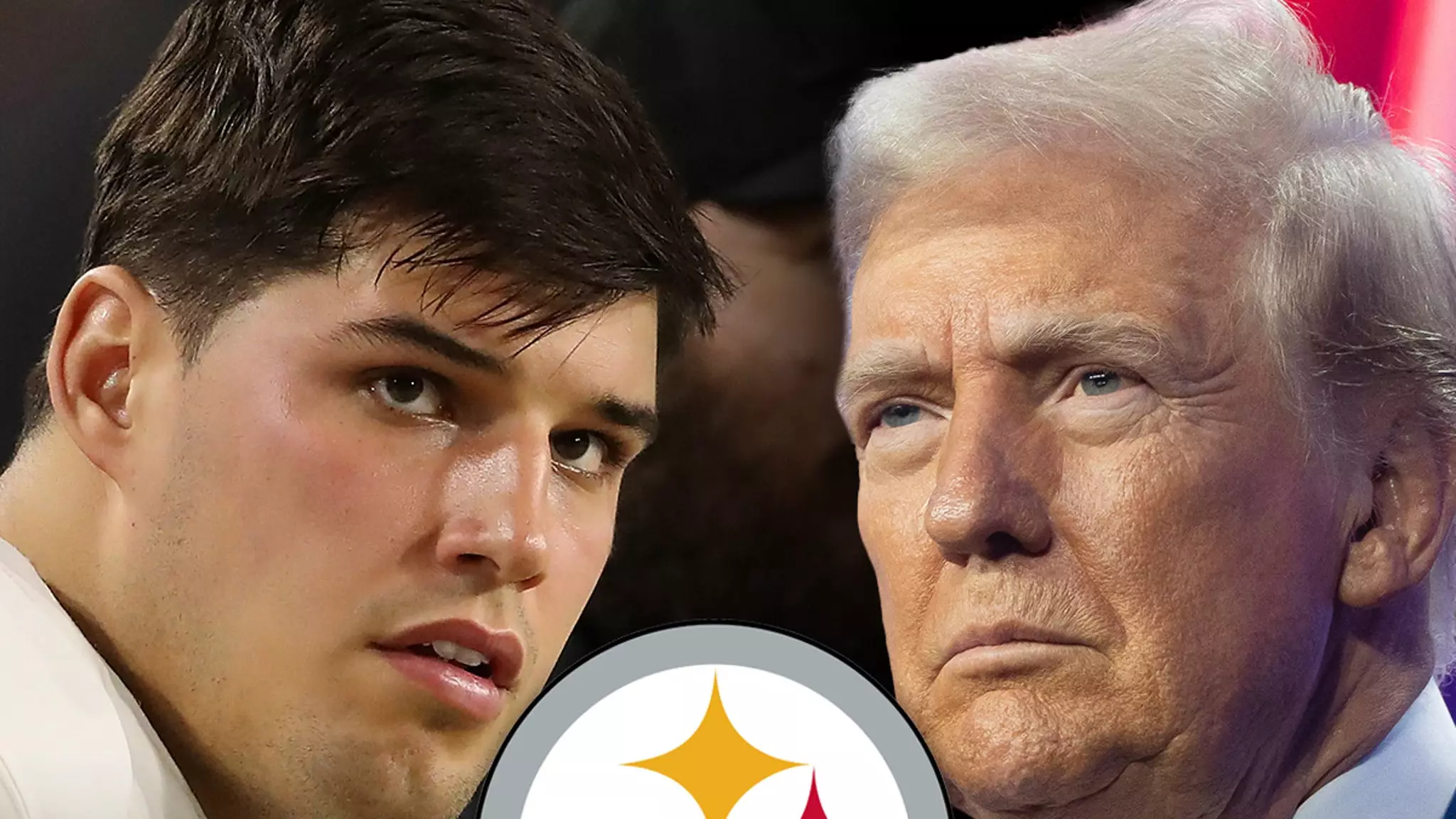The Pittsburgh Steelers find themselves navigating a delicate situation after quarterback Mason Rudolph made headlines by attending a rally for former President Donald Trump. This incident has prompted the Steelers organization to distance themselves from Rudolph’s political stance, sending a clear message to fans that such views do not reflect the team’s collective ethos. The complexities of this scenario, where personal beliefs intersect with team identity, illuminate the challenges inherent in sports today, especially within a franchise that values unity and inclusivity.
The Ripple Effect of a Rally
Rudolph’s appearance at the political event, alongside teammates Miles Killebrew and former player Rocky Bleier, was not without backlash. While some fans expressed their displeasure, the Steelers responded with a statement emphasizing individual freedom and the separation between personal and organizational values. This highlights an essential aspect of team dynamics: players are not mere representatives of a brand; they have their own lives and beliefs. However, this situation raises an important question: should athletes, particularly those in high-profile roles, be more mindful of the broader implications of their public personas?
The Role of Leadership in Franchises
Leadership within organizations like the Steelers plays a crucial role in maintaining team morale and public perception. By reiterating that individual views don’t represent the whole, the Steelers are trying to soothe worries among fans. Their strategy seems focused not just on damage control, but on reinforcing the idea that sports should be an arena for unity and camaraderie, rather than division by political affiliations. Nevertheless, the inherent risk lies in alienating a segment of the fan base that may resonate more with Rudolph’s political engagement than with the team’s overall stance.
Public Reception and Fan Base Divisions
Despite the team’s efforts to project a unified front, the reality remains that fans are not monolithic. Political affiliations often intersect with cultural and social values, and in this era of heightened polarization, the Steelers risk straying into a minefield. The mention of Trump praising Rudolph during the rally indicates that there are indeed fans who don’t mind, or even support, this alignment. This dichotomy can fracture fan loyalty, exposing the vulnerabilities of a beloved organization that thrives on community support.
A New Standard for Athlete Activism
This event underscores a broader trend in sports where athlete activism becomes intertwined with personal identity and public engagement. In a social climate increasingly characterized by polarization, players need to navigate these waters with both authenticity and foresight. The Pittsburgh Steelers, in this context, illustrate that while individual expression is important, it must coexist with the collective identity of the team. The challenge lies in fostering an environment where every player’s voice is heard while maintaining a sense of unity—an essential aspect of team success.
Ultimately, this incident invites a larger discussion about how sports organizations manage the intersection of personal beliefs and collective identity, a conversation that is only likely to grow in importance as more athletes engage with the socio-political landscape.

